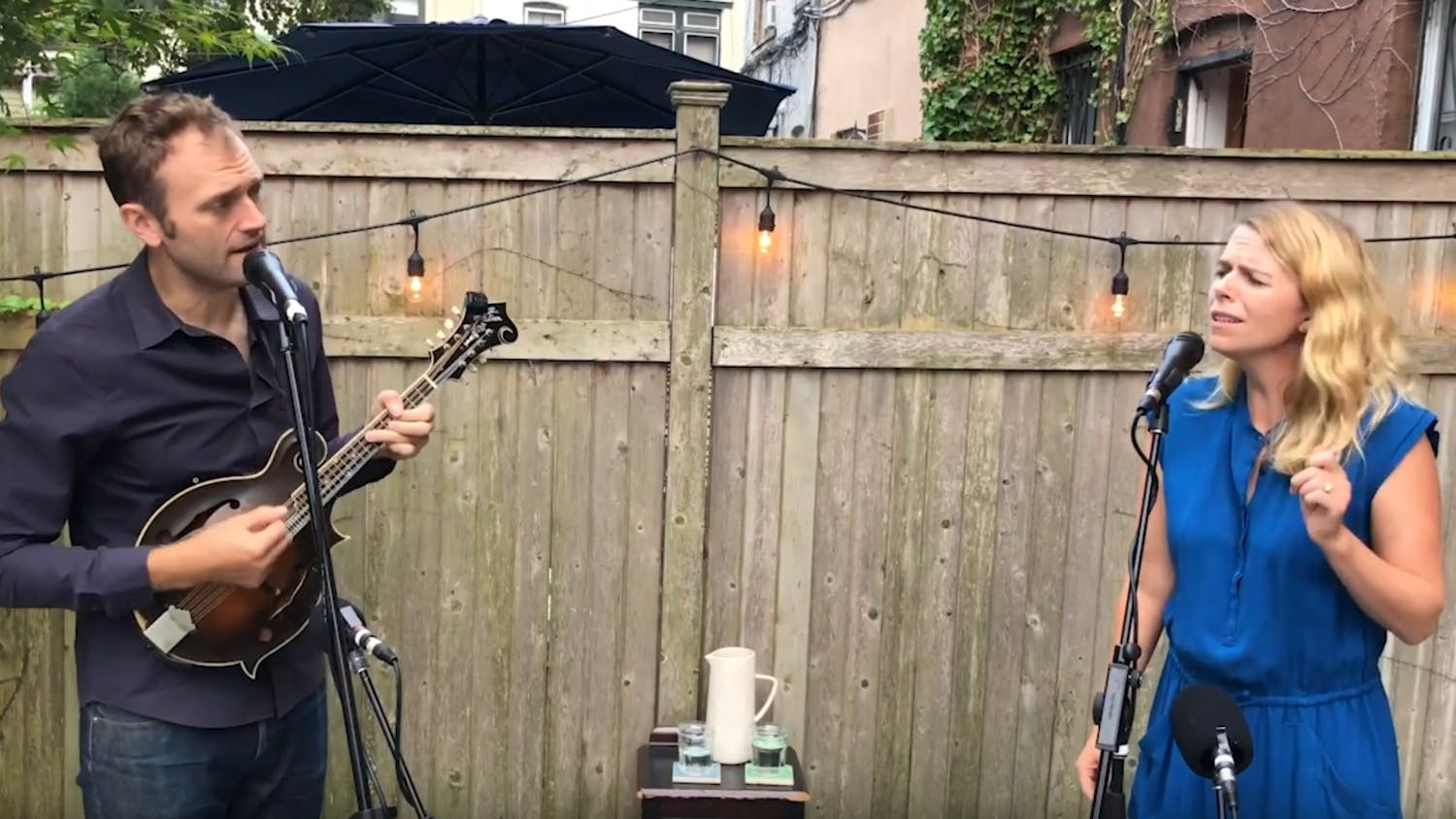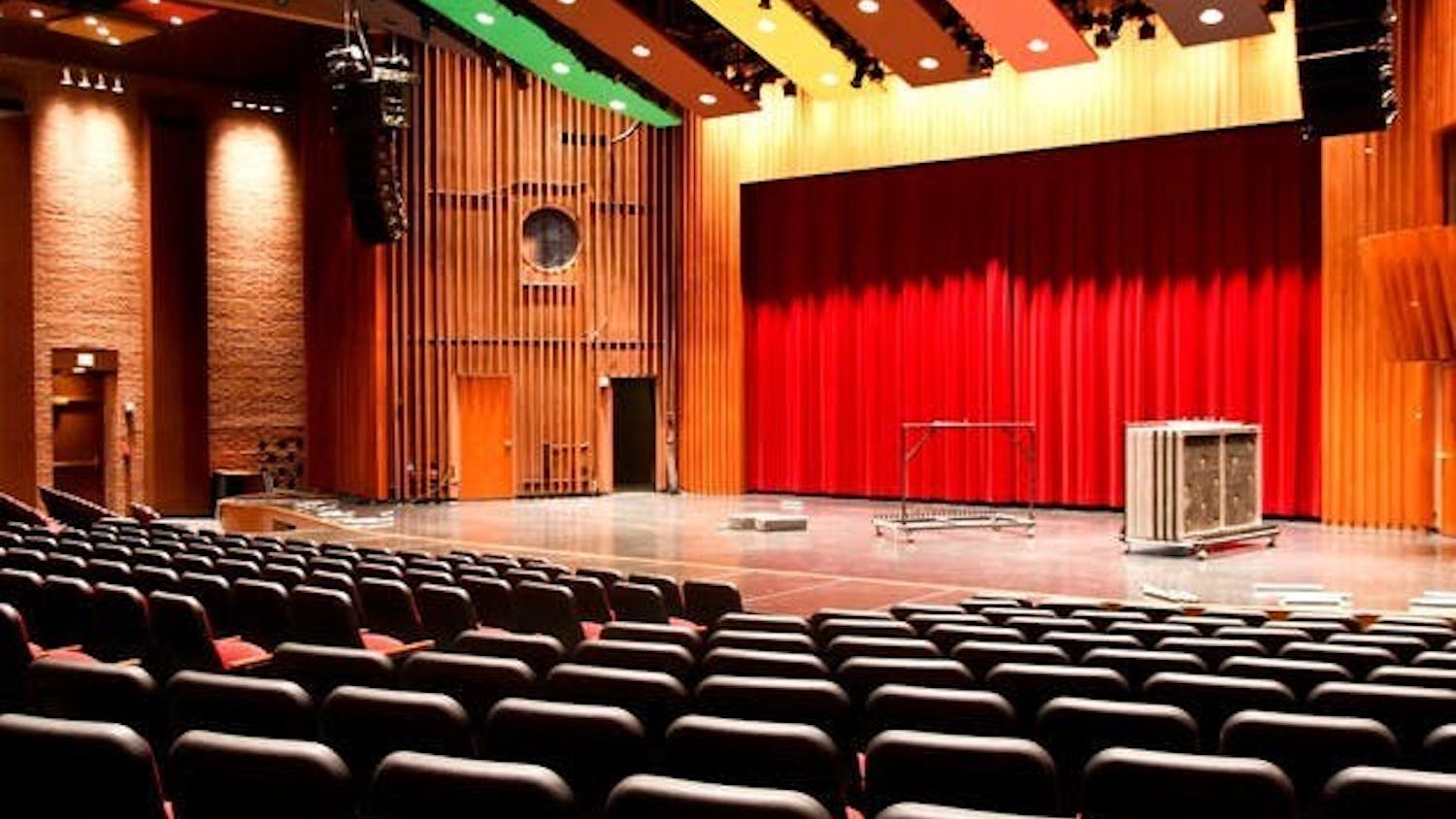On Tuesday night, the Hopkins Center for the Arts hosted renowned opera singer Nicole Heaston for a discussion surrounding her celebrated opera career and her thoughts on the industry overall for her first event as an artist in residence. During the event, Heaston shared notable clips from her past performances and details regarding her experiences in the world of opera with the Dartmouth community.
Moderator Filippo Ciabatti, co-founder of Dartmouth’s Opera Lab, and a few selected students asked Heaston questions on topics including the start of her musical career and the arts community’s obligation to become more accessible and diverse.
Ciabatti kicked off the event by asking Heaston how she discovered her passion for opera. Heaston noted that her musical trajectory was greatly defined by her high school music teacher, who helped her discover her talents as a soprano and encouraged her to explore opera. When Heaston was concerned about the lack of space for Black artists in the field, it was her high school music teacher who empowered her.
“She had me turn around, and on the wall were pictures of Leontyne Price, William Warfield, Simon Estes, Mattiwilda Dobbs. She said to me, ‘They are Black opera singers. You are a Black opera singer,’” Heaston said.
Heaston touched on the theme of Black representation in the opera industry several times throughout the evening. Camila Tassi, a research fellow in projection design and Master of Fine Arts student at the Yale School of Drama who earned her master’s in digital musics from Dartmouth in 2018, joined the live stream to ask Heaston about what aspects of opera she would like to see changed.
Heaston said she sees opera shifting toward embracing inclusivity and that she felt particularly empowered by the opportunity she had to play the titular role in “Jackie O” as a Black woman. However, she finds that the industry still needs more work. To accomplish this, Heaston suggests making opera less intimidating and more accessible to the average person, as well as working to tell the stories of diverse communities.
Kaj Johnson ’22, a Hop fellow who was involved with the marketing for the event, appreciated the opportunity to discuss the lack of diversity in the performing arts. According to Johnson, having an institution like Dartmouth organize a discussion centered on inclusivity speaks to a much needed commitment to featuring diverse performers at the Hop. He felt that the conversation was a “breath of fresh air” and shone a light on the ostracization of Black opera performers.
“[Black performers] have felt like they have had to play roles that do not represent them,” Johnson said. “They don't think they have things written for them, just because opera is so whitewashed and so gatekept based on class, as well.”
The event also included a clip of Heaston’s celebratory performance on Juneteenth this year, where she sang “Lift Every Voice and Sing” with an ensemble of her peers. The program, entitled “A New Freedom: Black Voices Honoring Juneteenth in a Time of Struggle,” was a virtual concert of music and spoken word that brought together numerous prominent Black vocalists to honor the significance of June 19, both in history and present day. Johnson said that this performance gave him the chance to appreciate Black performers.
“In a sense, [the performance] is breaking down a barrier of all of these Black artists that do not have a representative artist,” Johnson said. “I was seeing all these people, Googling them and learning about them. It was a showcasing of Black talent across the board, which was really special.”
Heaston also discussed accessibility in the opera world in response to a question from Ciabatti about the changes she hopes to see within the field. Opera’s grand and exclusive nature tends to exclude many who do not have the money or connections to be part of it, she said.
“I truly think that opera should just become smaller,” Heaston said. “I think that it has gotten so grand and so big that it is excluding a lot of people, where people do not think it is for them.”
Ciabatti echoed a similar sentiment, noting that the current pandemic was a way to welcome more people into opera. According to Ciabatti, virtual streaming has made opera more accessible and has stripped away the opera’s normal glitz and glamor. Rather than being limited to its typically upper class audience, anyone interested in opera now has the opportunity to attend performances.
“We are going into an age that is much more about smaller ensembles, smaller spaces, particularly more portable flexible performance spaces and performance teams,” Ciabatti said. “Doing opera, if you want to sing an aria, you just need a piano and a singer. You can do this in the back of a garage or a small theater. You do not necessarily need to do this at the Metropolitan Opera.”
Heaston illustrated this idea by showing recorded videos of herself singing at home, detaching opera from its typical stagings and extravagant setting. The recordings — which showed Heaston singing a wide range of music, including opera — were shared to her personal Facebook and YouTube pages, remotely drawing people into the opera world in a casual yet intimate way.
This event also demonstrated how the Hop used the pandemic as an opportunity to increase accessibility within the arts. Hop director of external affairs Michael Bodel noted that the remote nature of this event allowed a broad range of Dartmouth community members to tune into the conversation. Over 100 alumni and students scattered across the globe, who may not have been able to travel to Spaulding Auditorium, were able to learn more about Heaston's work.
“We’re really interested in bringing, slowly but surely, more opera creators, opera performers and opera producers to Dartmouth so that our students have a chance to learn how the field operates and where the craft is right now,” Bodel said.
As an artist in residence, Heaston will be participating in additional programming with the Hop. Students can learn more from Heaston in her upcoming vocal masterclass offering and her “12 Days of Christmas” virtual performance series, which will begin on Dec. 1.




